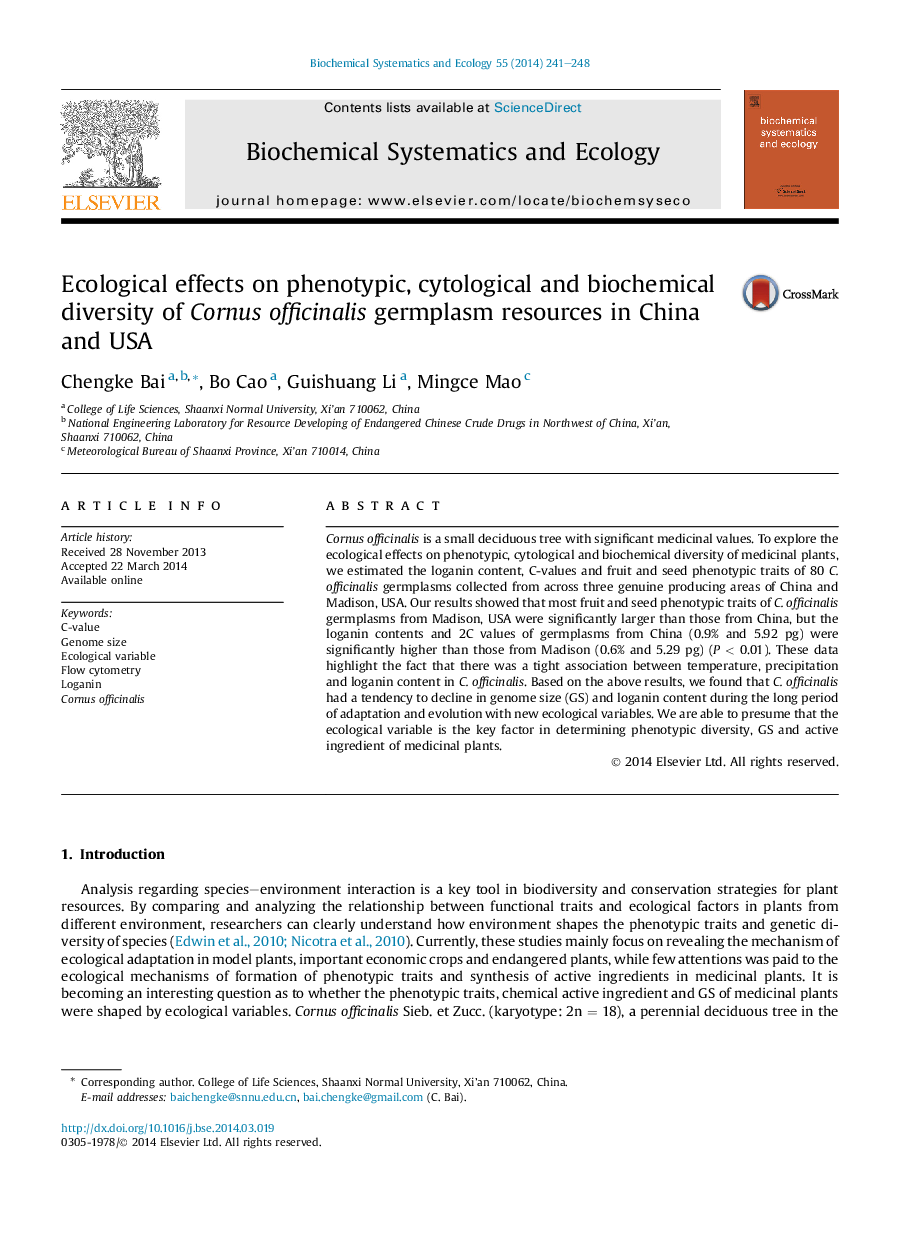| Article ID | Journal | Published Year | Pages | File Type |
|---|---|---|---|---|
| 7768800 | Biochemical Systematics and Ecology | 2014 | 8 Pages |
Abstract
Cornus officinalis is a small deciduous tree with significant medicinal values. To explore the ecological effects on phenotypic, cytological and biochemical diversity of medicinal plants, we estimated the loganin content, C-values and fruit and seed phenotypic traits of 80 C. officinalis germplasms collected from across three genuine producing areas of China and Madison, USA. Our results showed that most fruit and seed phenotypic traits of C. officinalis germplasms from Madison, USA were significantly larger than those from China, but the loganin contents and 2C values of germplasms from China (0.9% and 5.92Â pg) were significantly higher than those from Madison (0.6% and 5.29Â pg) (PÂ <Â 0.01). These data highlight the fact that there was a tight association between temperature, precipitation and loganin content in C. officinalis. Based on the above results, we found that C. officinalis had a tendency to decline in genome size (GS) and loganin content during the long period of adaptation and evolution with new ecological variables. We are able to presume that the ecological variable is the key factor in determining phenotypic diversity, GS and active ingredient of medicinal plants.
Related Topics
Physical Sciences and Engineering
Chemistry
Organic Chemistry
Authors
Chengke Bai, Bo Cao, Guishuang Li, Mingce Mao,
